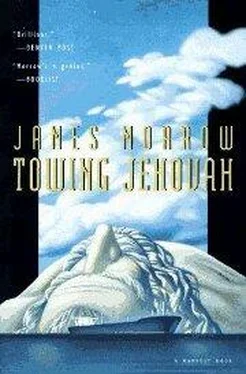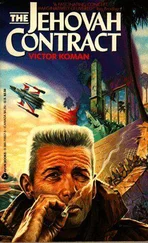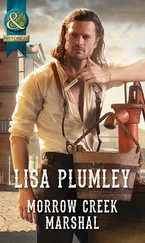“Yeah, and why on the fucking Titanic?” asked a leathery old sailor with I LOVE BRENDA tattooed on the back of his hand.
“I’ll tell you something else,” said the blobby man. “I been to Svalbard on a bulk carrier once, and I can say for an absolute fact you won’t find one solitary drop of crude up there. What’re we takin’ on, walrus piss?”
“Well, it’s great to have a ship,” said willowy An-mei Jong with forced enthusiasm.
“Oh, for sure,” said Brenda’s lover with artificial cheer.
Reaching into his right pants pocket, Neil squeezed his grandfather’s Ben-Gurion medal. “Let’s go sign up,” he said, when in fact his impulse was to bolt from the room, find some unemployed sailor roaming the Eleventh Avenue docks, and give the poor bastard his berth.
FOR THE AVERAGE sea captain, handing one’s ship over to a harbor pilot was a wrenching experience, an ordeal of displacement not unlike that endured by a husband finding an alien brand of condom in his wife’s purse. But Anthony Van Horne was not the average sea captain. Harbor pilots didn’t make the rules, he reasoned; the National Transportation Safety Board did. And so when a battered New York Port Authority launch tied up alongside the Carpco Valparaíso at 1735 hours on the evening of her scheduled departure, Anthony was quite prepared to be civil.
Then he recognized the pilot.
Frank Kolby. Unctuous old Frank Kolby, the idiot who’d laughed so uproariously on seeing Anthony’s father reenact the wreck of the Val in a gravy boat.
“Hello, Frank.”
“Hiya, Anthony.” The pilot stepped into the wheelhouse and pulled off his black waterproof leggings. “I heard it was you on the bridge.” He wore a blue three-piece suit, well tailored and neatly pressed, as if trying to pass himself off as other than what he was, a glorified parking-lot attendant. “They spliced the Val together real good, didn’t they?”
“I expect she’ll last another voyage,” said Anthony, slipping on his mirrorshades.
The tugboats tooted their readiness. Kolby dropped his leggings next to the compass binnacle, then reached toward the control console and snatched up the walkie-talkie. “Raise anchors!”
Groaning, gushing steam, the fo’c’sle windlasses rotated, slowly drawing two algae-coated chains from the river. On the forward TV monitor Anthony watched globs of dark silt slide from the starboard anchor like Jell-O from a fork and plop into the Hudson. For an instant he imagined he saw Raphael Azarias’s corpse wrapped around the flukes, but then he realized it was only an angel-shaped hunk of mud.
“Cast off!”
Snugging his John Deere visor cap down to his eyebrows, Anthony opened the starboard door and strode across the bridge wing. All along Pier 88, stevedores in torn plimsolls and ratty T-shirts scurried about, untying Dacron lines from bollards, setting the tanker free. Sea gulls wheeled across the setting sun, squawking their endless disapproval of the world. A half-dozen tugs converged from all directions, whistles shrieking madly as their crews tossed thick, shaggy ropes to the ABs stationed on the Val’s weather deck.
Anthony inhaled a generous helping of harbor air — his last chance, before shoving off, to savor this unique mix of bunker oil, bilge water, raw sewage, dead fish, and gull guano — and stepped back inside.
“Slow ahead,” said Kolby. “Twenty rpm’s.”
“Slow ahead.” Chief Mate Marbles Rafferty — a mournful black sailor in his early forties, lean and tightly wound, a kind of human sheepshank — eased the dual joysticks forward.
Gently, cautiously, like a team of seeing-eye tuna guiding a blind whale home, the tugs began the simultaneously gross and balletic business of hauling the Valparaíso down the river and pointing her into Upper New York Bay.
“Right ten degrees,” said Kolby.
“Right ten,” echoed the AB at the helm, Karl Jaworski, a paunchy sailor who carried the designation able-bodied seaman into the deepest reaches of euphemism. Eyes locked on the rudder indicator, Jaworski gave the wheel a lethargic twist.
“Half ahead,” said Kolby.
“Half ahead,” said Rafferty, advancing the throttles.
The Valparaíso coasted smoothly over three hundred westbound commuters stuck in the Holland Tunnel’s regular six P.M. traffic jam.
“Is it true Dad and his wife are in Spain?” Anthony asked the pilot.
“Yep,” said Kolby. “Town called Valladolid.”
“Never heard of it.”
“Christopher Columbus died there.”
Anthony suppressed a smirk. But of course. Where else would the old man drag himself at the end of his life but to the site of his idol’s passing?
“Know how I can reach him?”
As the pilot pulled a computerized Sanyo Life Organizer from his vest, Anthony flashed on the previous Thanksgiving: Kolby eating a helping of mashed potatoes saturated with giblet gravy and lighter fluid.
“I got his fax number.”
Anthony grabbed a Chevron ballpoint and an American Practical Navigator from atop the Marisat computer. “Shoot,” he said, opening the book.
Why did his father identify so fiercely with Columbus? Reincarnation? If so, then the spirit that occupied Christopher Van Horne was surely not the visionary, inspired Columbus who’d discovered the New World. It was the demented, arthritic Columbus of the subsequent voyages — the Columbus who’d kept a gibbet permanently installed on the taffrail of his ship so he could hang mutineers, deserters, grumblers, and all those who publicly doubted they’d reached the Indies.
“Dial 011-34-28 …”
Anthony transcribed the number across a diagram of the Little Dipper, filling the bowl with digits.
“Away with the tugs!” bellowed Kolby.
As the World Trade Center loomed up, its promontories rising into the dusk like bollards meant to moor some unimaginably humongous ship, a disquieting thought possessed Anthony. This seventy-year-old Sea Scout, this asshole friend of his icebox father, was within two hundred yards of hanging them up on the shoals.
“Come right ten degrees!” cried Anthony.
“I was about to say that,” Kolby snapped.
“Right ten,” echoed Jaworski.
“Dead slow!” said Anthony.
“And that,” said Kolby.
“Dead slow,” echoed Rafferty.
“Stern tugs gone,” came the bos’n’s report, rasping out of the walkie-talkie.
“You gotta be a little sharper, Frank.” Anthony gave the pilot a condescending wink. “When the Val’ s riding this light, she takes her sweet time turning.”
“Forward tugs gone,” said the bos’n.
“Steady,” said Anthony.
“Steady,” said Jaworski.
The tugs spun north, let out a high, raunchy series of farewell toots, and steamed back up the Hudson like an ensemble of seagoing calliopes.
“Wake up the pump room,” said Kolby, plucking the intercom mike from the console and handing it to the chief mate. “Time we took on some ballast.”
“Don’t do it, Marbles,” said Anthony.
“I need ballast to steer,” Kolby protested.
“Look at the fathometer, for Christ’s sake. Our barnacles can stick their peckers in the bottom.”
“This is my harbor, Anthony. I know how deep it is.”
“No ballast, Frank.”
The pilot reddened and fumed. “It appears I’m no longer needed up here, am I?”
“Appears that way.”
“Who’s your tailor, Frank?” asked Rafferty, deadpan. “I’d like to be buried in a suit like that.”
“Fuck you,” said the pilot. “Fuck the lot of you.”
Anthony tore the walkie-talkie from Kolby’s hand. “Lower starboard accommodation ladder,” he instructed the bos’n. “We’re dropping our pilot in ten minutes.”
Читать дальше












